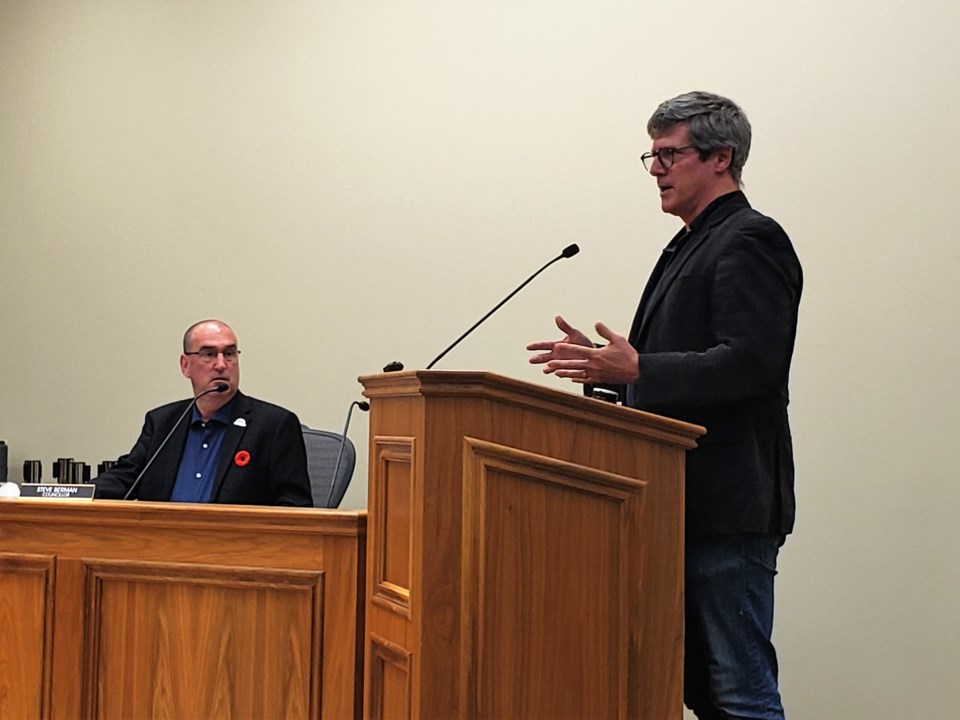You may be ingesting five grams of plastic every year.
The startling statistic was presented as part of a presentation by David Sweetnam with Georgian Bay Forever (GBF) to the corporate and community services standing committee on a new microfibres reduction initiative that is hoping to use Collingwood as a test municipality.
The program is looking to recruit between 500 and 600 households in Collingwood to add a filtration system to their washing machines, which according to the group’s research has determined is the main source of the offending plastic in municipal water sources.
“We are starting to ingest microfibres now... municipality-treated water has microfibres in it,” said Sweetnam.
During his presentation, Sweetnam said a significant source of microplastics in water come from synthetic materials used in clothing such as fleeces. Washing clothes produces millions of microplastics that are drained into municipal sewer systems. Their size and buoyancy allows them to escape through most municipal water filtration systems and be washed into our water ways or be directly discharged with storm induced sewage bypasses.
The proposed project in Collingwood includes an educational component for the public and students, filtering of washing machine effluent in 500 or more households and businesses, SeaBins which would skim plastic, debris and oil from the inner harbour, adding storm drain catchers on several streams and water testing.
It expands on a successful initial initiative between the Town of Parry Sound and GBF which was funded by the federal EcoAction program.
“Microfibres can absorb and concentrate toxins in the water that can be ingested by aquatic species and ultimately end up in our own food supply,” said Sweetnam.
The project will be funded entirely by provincial grants.
Pending the receipt of the provincial funding, this project will have a project lead working for GBF who will manage the day-to-day work in Collingwood.
While the definitive impacts of microplastics are not known, the staff report notes the final report on outcomes from this project could better inform council on whether future microplastics projects will be taken on.
Coun. Mariane McLeod asked staff to report back whether the water quality testing done in Collingwood tests for microfibres.
The committee voted to recommend receiving the report, writing a letter of support for the group’s Trillium Foundation Grant application and providing temporary office space for one GBF staff provided on a best-effort basis when available. The decision will need to be ratified at the next meeting of council.
For more information on Georgian Bay Forever, click here.
